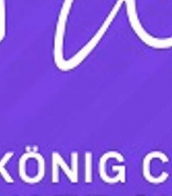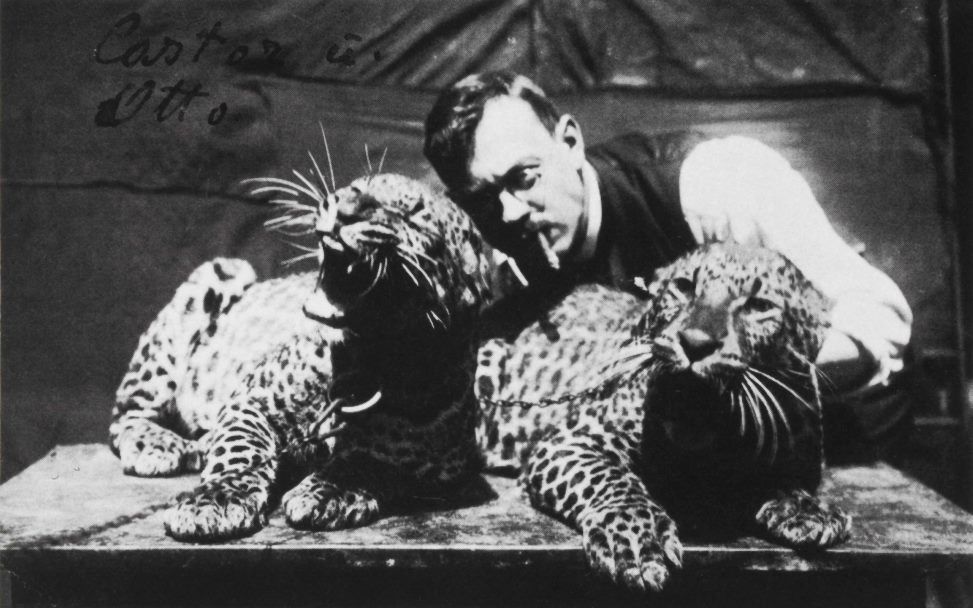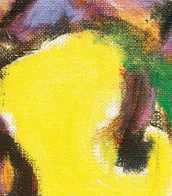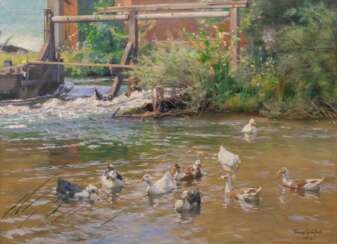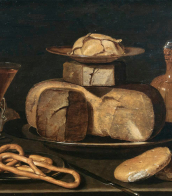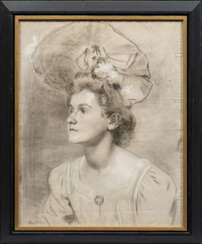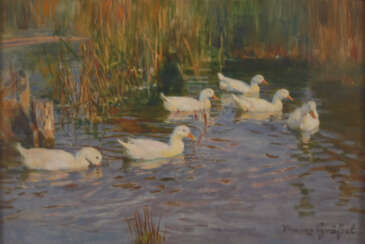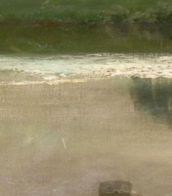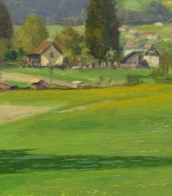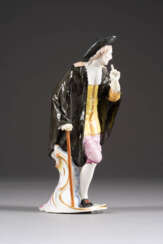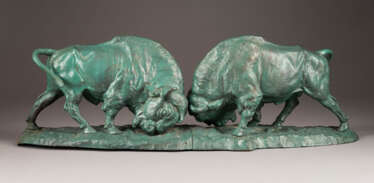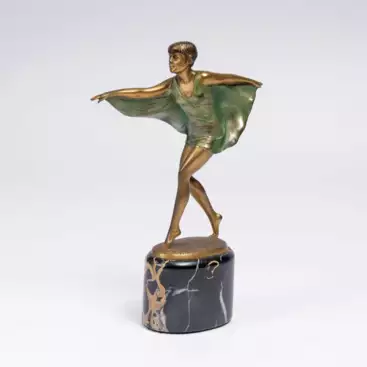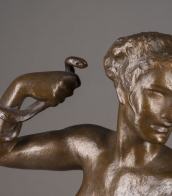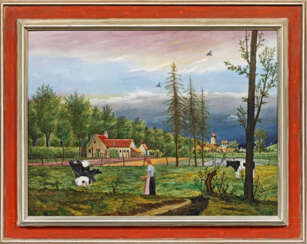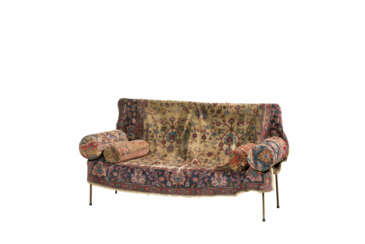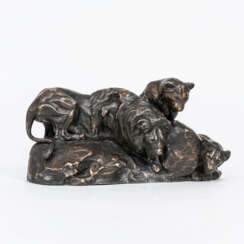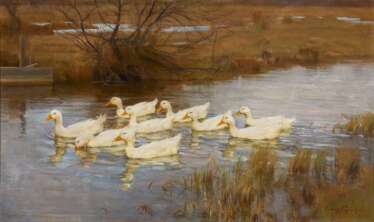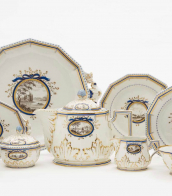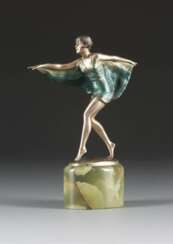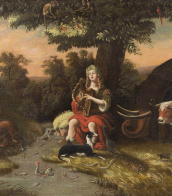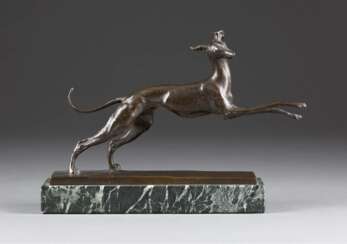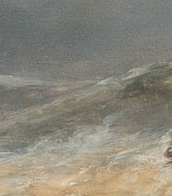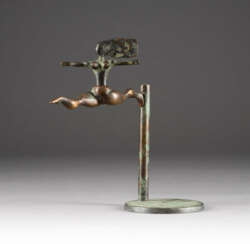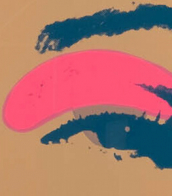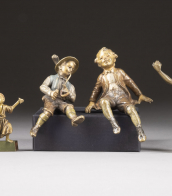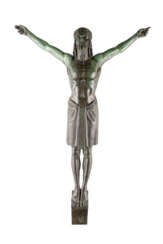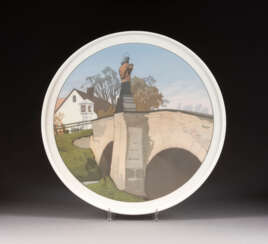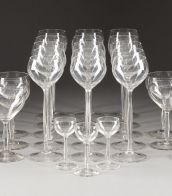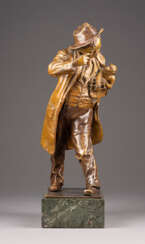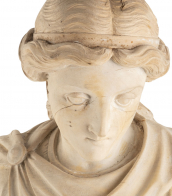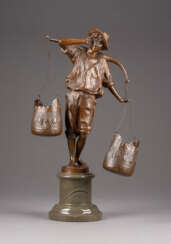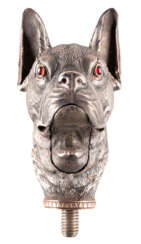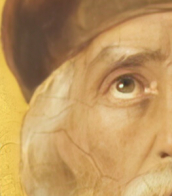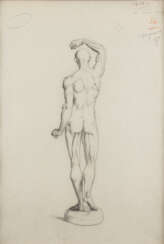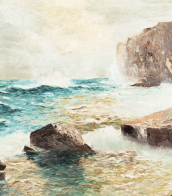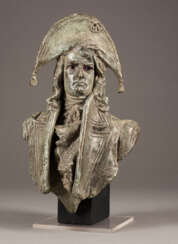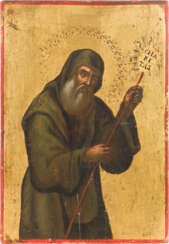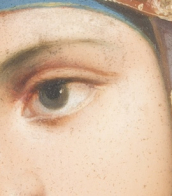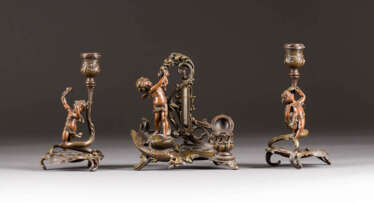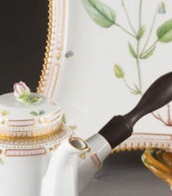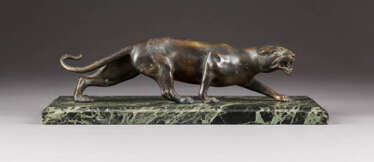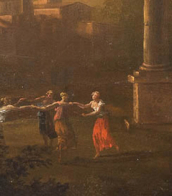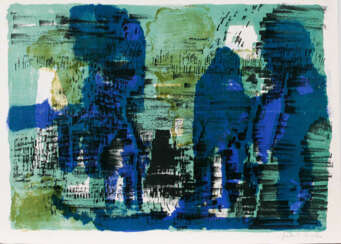"franz grässel"

Franz Xafer Gräßel was a German animal and landscape painter.
Gräßel studied painting at the Karlsruhe Academy and at the Munich Academy, where he became a professor in 1911. Initially his favorite subject was rural landscapes, but from 1894 he painted mainly ducks and geese and achieved a high level of skill in their depiction. Gräßel even earned the nickname "duck painter".
In 1932 Gräßel joined the NSDAP, and in 1938, 1939 and 1940 was represented by four paintings at the Great Exhibition of German Art in Munich. Adolf Hitler liked them so much that he purchased them all. The artist's paintings are now in important galleries and collections in Germany.
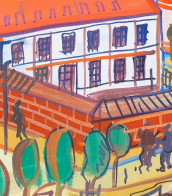

Franz Xafer Gräßel was a German animal and landscape painter.
Gräßel studied painting at the Karlsruhe Academy and at the Munich Academy, where he became a professor in 1911. Initially his favorite subject was rural landscapes, but from 1894 he painted mainly ducks and geese and achieved a high level of skill in their depiction. Gräßel even earned the nickname "duck painter".
In 1932 Gräßel joined the NSDAP, and in 1938, 1939 and 1940 was represented by four paintings at the Great Exhibition of German Art in Munich. Adolf Hitler liked them so much that he purchased them all. The artist's paintings are now in important galleries and collections in Germany.


Franz Xafer Gräßel was a German animal and landscape painter.
Gräßel studied painting at the Karlsruhe Academy and at the Munich Academy, where he became a professor in 1911. Initially his favorite subject was rural landscapes, but from 1894 he painted mainly ducks and geese and achieved a high level of skill in their depiction. Gräßel even earned the nickname "duck painter".
In 1932 Gräßel joined the NSDAP, and in 1938, 1939 and 1940 was represented by four paintings at the Great Exhibition of German Art in Munich. Adolf Hitler liked them so much that he purchased them all. The artist's paintings are now in important galleries and collections in Germany.


Franz Xafer Gräßel was a German animal and landscape painter.
Gräßel studied painting at the Karlsruhe Academy and at the Munich Academy, where he became a professor in 1911. Initially his favorite subject was rural landscapes, but from 1894 he painted mainly ducks and geese and achieved a high level of skill in their depiction. Gräßel even earned the nickname "duck painter".
In 1932 Gräßel joined the NSDAP, and in 1938, 1939 and 1940 was represented by four paintings at the Great Exhibition of German Art in Munich. Adolf Hitler liked them so much that he purchased them all. The artist's paintings are now in important galleries and collections in Germany.
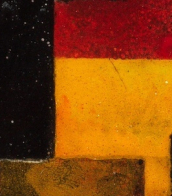
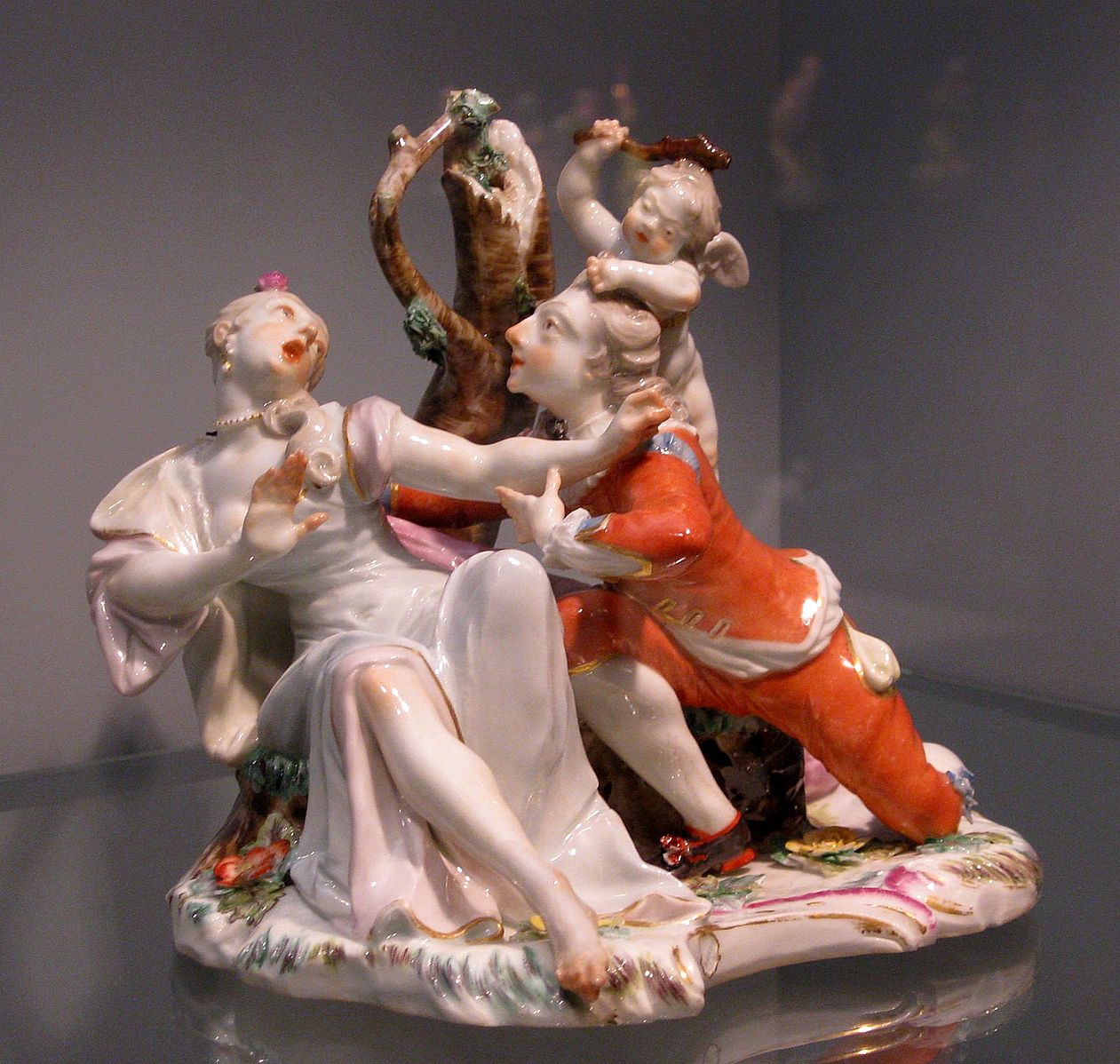
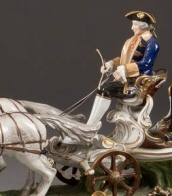
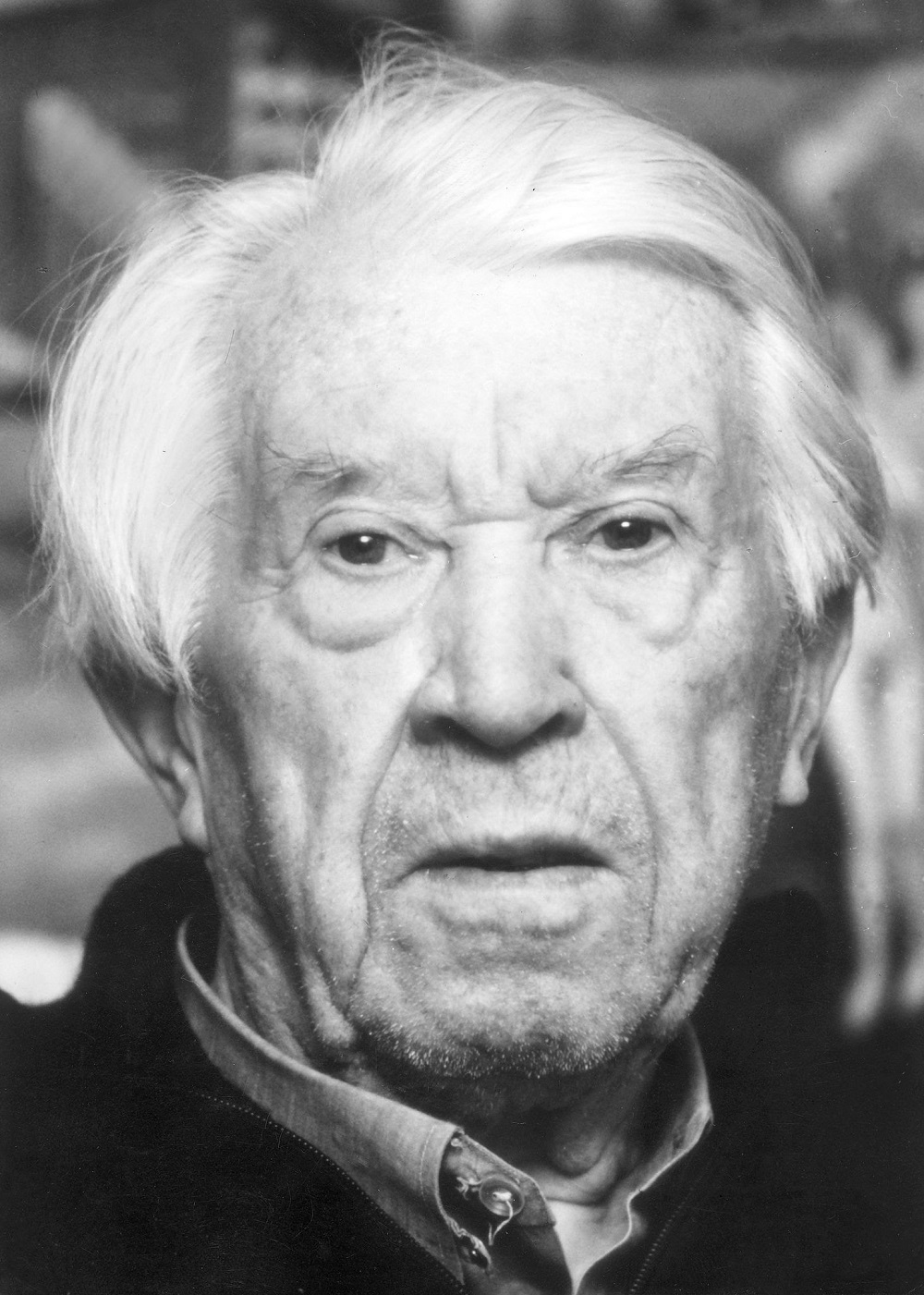
Franz Radziwill was a German artist of the twentieth century. He is known as a landscape painter, graphic artist and printmaker associated with the artistic movement of "new materiality".
Franz Radziwill created paintings that are characterized by careful elaboration and the use of glaze techniques borrowed from the Old Masters. He used elements of industrial buildings and modern technology, including ships and airplanes, in his landscapes. The results of his work can be categorized as magical realism.
In 1933 Radziwill became professor of painting at the Düsseldorf Academy of Art, but in 1935 the Nazis stripped him of this position, declaring his work degenerate art.
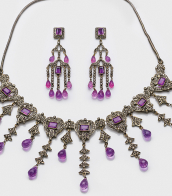
.jpg)
Franz West was an Austrian artist.
